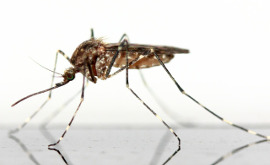 While pet owners routinely go through the same heartworm disease prevention protocol every year, many do not fully understand exactly what they are treating – and what risks are involved.
While pet owners routinely go through the same heartworm disease prevention protocol every year, many do not fully understand exactly what they are treating – and what risks are involved.
Heartworms are large roundworms. They live in the heart and blood vessels supplying the lungs. This parasitic worm, called Dirofilaria immitis, reproduces inside a living host, and survives on nutrients stolen from the host’s blood. Heartworms resemble strands of spaghetti and can grow to a length of 15-30 centimetres. In severe cases, a host may be infested with hundreds of worms, called a ‘burden’.
You may never look at spaghetti the same way again. I’m sorry about that.
Heartworms are only spread by mosquitoes. Once an infected mosquito bites into their host, immature worms are injected into the bloodstream, and work their way to the heart and lungs. Eventually this may lead to damage to vital organs. It takes approximately six months for larvae to mature into adult heartworms, with a lifespan of up to seven years inside an infected canine. The animals most likely to become infected with heartworm are dogs, cats, and also ferrets.
Because heartworm can only be spread through the bites of infected mosquitoes, it isn’t contagious from animal to animal.
Early detection is difficult if you are only monitoring for heartworm-related symptoms. By the time a pet becomes noticeably symptomatic, it is likely their condition has progressed to the point of doing damage to vital organs. Noticeable symptoms include lethargy, difficulty breathing, a bulging chest, weight loss, and collapse. Because detecting heartworm early is so important, it is a good idea to speak with your veterinarian about regular heartworm testing.
For an infected pet, heartworm disease may be treated using an FDA-approved drug called melarsomine dihydrochloride, more commonly known as Immiticide and Diroban. Due to the litany of bloodwork, x-rays, and injections involved, treatment for heartworm disease is expensive and very hard on our pets. Unfortunately, the medication comes with several serious risks as it contains arsenic and may be toxic.
This is why, when it comes to heartworm disease, early prevention is key. Preventative treatments commonly involve monthly dosages of heartworm medication prescribed by a veterinarian.
More recently, some pet owners have been choosing to take a natural approach to heartworm prevention. Certain essential oils that have anti-parasitic properties may be used externally, such as geranium and tea tree oil. However the effectiveness and potential side effects of using essential oils for heartworm prevention are not yet fully understood. If you choose to explore this option further, consult with a Naturopathic Veterinarian.
It is best to speak with your veterinarian about heartworm. Learning about heartworm disease may seem scary at first, however there is comfort in knowing that this disease is easily preventable.
Brandon Forder – also known as The Pet Expert – is vice-president of Canadian Pet Connection, a family-owned and -operated business located in Meaford. He has over twenty years experience specializing in pet nutrition, behaviour and lifestyle. Canadian Pet Connection is an industry leader committed to providing their clients with the highest levels of personal, attentive service. Learn more at www.CanadianPetConnection.com.











